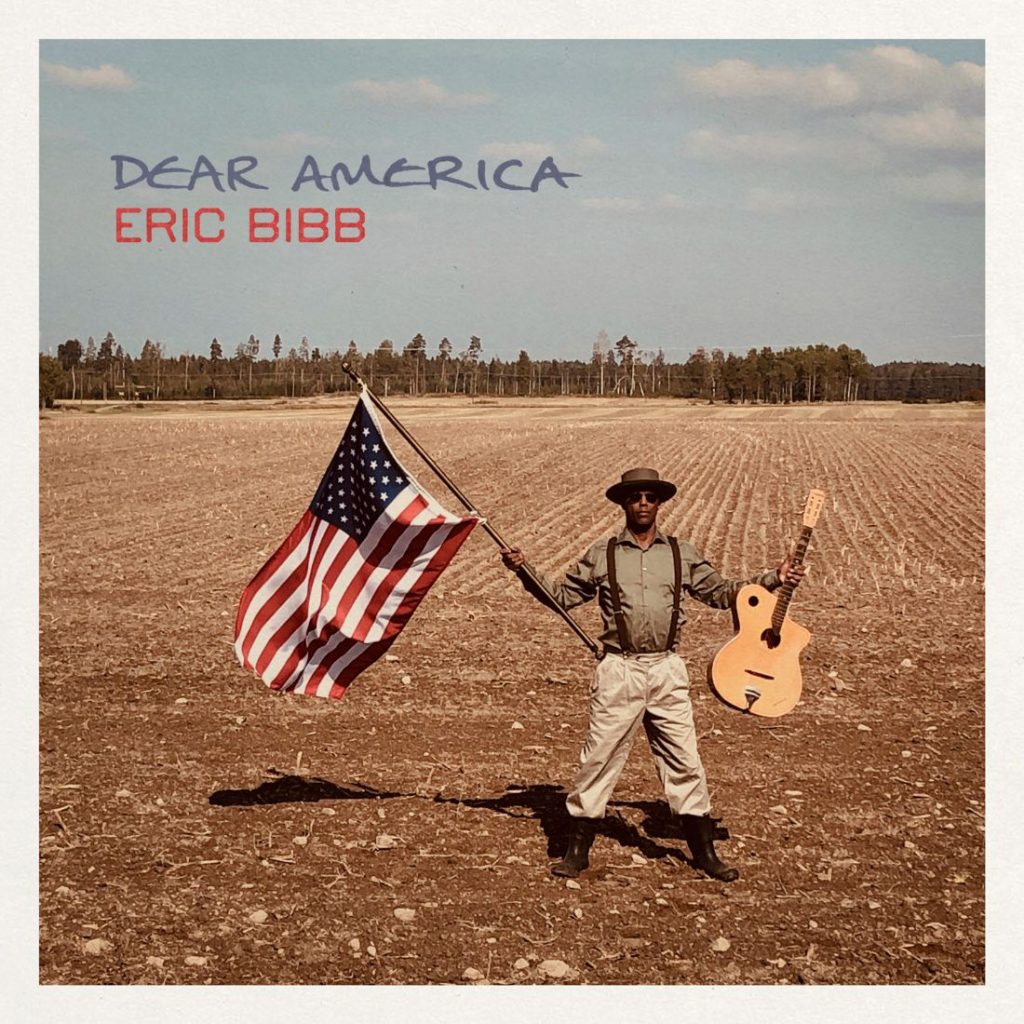On ‘Dear America,’ Eric Bibb Sends a Love Letter Laced with Hard Truths

If Eric Bibb were any cooler, he’d have to hang out in a refrigerator. Chilled out, blissed-out, and laid back, Bibb radiates mellow like the coils of a Frigidaire, spreading clouds of cool every time he opens his mouth.
But the troubadour doesn’t aspire to the worship or practice of hipness. His message is serious, as you might expect from the son of famed protest singer Leon Bibb. Blacklisted for his support of alleged left-wing causes in the 1950s, the elder Bibb was also involved in civil rights causes, participating in the historic Selma-to-Montgomery march in 1965.
Early in his career, Leon Bibb was chastised for appearing at a tribute concert for 14-year-old Emmett Till, murdered in Mississippi in 1955 after an accusation that he whistled at a white woman. Eric Bibb takes up that topic as well on “Emmett’s Ghost,” from his latest release, Dear America. In a spoken-word intro, Bibb recalls as a young boy seeing a picture of Emmett’s battered face in a book his parents had, revealing later on in the lyrics “That photograph scared me so bad I started to cry / what a way for a boy like me to die.” Despite his velvety delivery, underscored with Ron Carter’s sinister, stalking bass line, Bibb’s stark account of the murder still resonates, ending with the chilling observation that “his ghost is still walking around / can’t move on cos hate’s still going strong / all over this country.”
The title cut opens with another spoken-word statement, this time a quote from Dr. Martin Luther King Jr. stating that the appalling silence of the good people was the greatest tragedy of this period of social transition. Bibb sermonizes on making amends for this country’s treatment of his ancestors aided by Shaneeka Simon’s churchy wails. He mourns the country he has deep roots in, and fellow Americans who call him a citizen but then exclude him “cos the color of my skin.”
Eric Gales helps out on “Whole World’s Got the Blues,” adding some slinky, sinister guitar wails while Steve Jordan provides heavy-duty percussive support to Bibb’s pleas for a quantum leaping solution to remove the blue tint from the world’s complexion.
With the help of sacred steel icon Chuck Campbell’s soaring celestial pedal steel, Bibb’s “Different Picture” presents a troublesome travelogue chronicling America’s urban woes, but Bibb nevertheless holds out hope for the healing power of love.
Calling this album a love letter to America, Bibb holds this country’s feet to the fire, trying to burn out the hatred and prejudice with a searing brand of hot coals wrapped in velvet.




